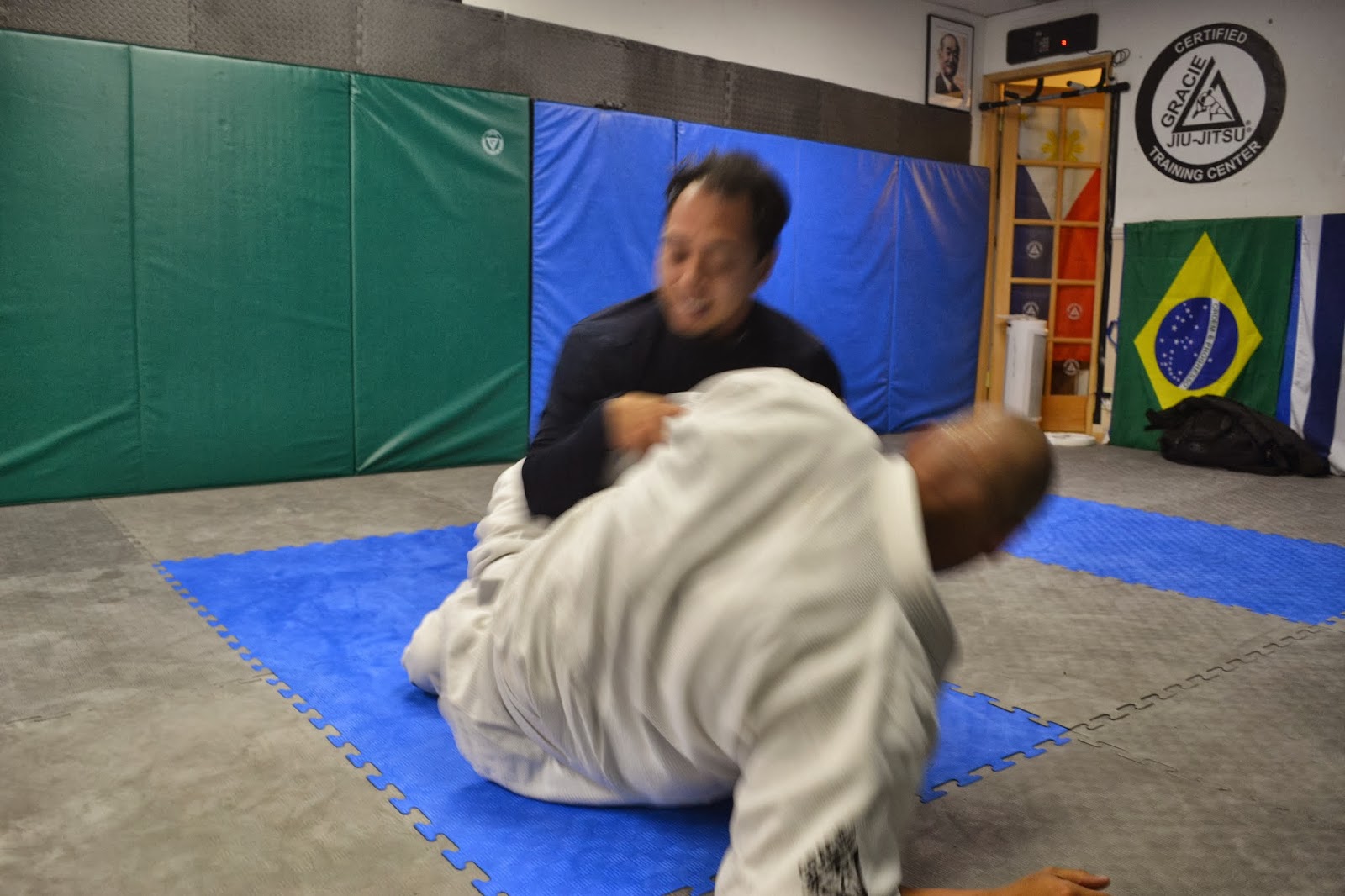Literal:
(a): I, Bryan Posada, affirm that I completed my independent component which represents 30 hours of work.
(b): Cite your source regarding who or what article or book helped you complete the independent component.
-Since my Independent Component was solely to train and better myself as a Gracie Jiu-Jitsu student, I have to thank my mentors. My head instructor Jorge Balares who teaches me more than I should be learning due to my rank but does so anyways and my other sub-instructors Dave, Paul, Han and Alex, who, during days when Jorge isn't there, take over the class and fulfill the instructor role for us. Another source I would give credit to would be my set of Gracie Combative CD's (As shown in my January Blog Post) performed by Rener and Ryron Gracie, as it is basically my mentorship put in digital form.
(c): Provide a digital spreadsheet (aka log of the 30 hours).
-Click the top right part of the page that says, "Independent Component Log."
(d): Explanation of what you completed.
-So for Independent Component I basically just did what I do. Train. I can't say that I've completed anything product-wise but I can say that though these extra hours of training and learning my art, I've been able to grow with it and develop my own style. I learned what I was capable of and overall I realized what worked and what didn't work through various sparring sessions and breakdowns of techniques through others' perspectives; for example I adapted my style to be a conservative fighter, always observing before reacting and landing the fight in my Guard so I can be in my comfortable spot. These 30 hours have molded me to be able to practice my EQ and maybe even give me the training I needed to tap out Alfredo (ehh kinda but I'll throw that in) and stand a chance against a mini roll James earlier today. The only physical thing I guess have come out from this mixture of Independent component and Mentorship would be my promotions and my now recent work on my application video for my Blue belt to send to the Gracie Academy in Torrance and begin teaching the class myself.
Interpretive:
Defend your work and explain the significant parts of your component and how it demonstrates 30 hours of work. Provide evidence. (photos, transcript, art work, videos, etc) of the 30 hours of work.
-So for my independent component all I ever did was train with my mentors and practice at home with my Combatives DVD's with that being said I have a few pictures of what would happen whenever I would go. I
give some photo credits to my aunt who would try to take pics when she would sit in.
 |
|
 These Next few pics are just going to be pics of the training center and what a day in class actually feels like.

|


Applied:
How did the component help you understand the foundation of your topic better? Please include specific examples to illustrate how it helped.
-For me the independent component helped by letting me practice and develop my own style. A lot of my early "foundation" research was based on Theory; how GJJ was meant for the weaker opponent to beat the stronger and even GJJ essentials of leverage and energy conservation, but I never really understood what all that theory meant. It wasn't until I practiced and knew what I was doing that I began to slowly realize "Oh that's what he meant" moments. This component let me mold my EQ from what I had experienced in class and allowed it to be a debacle that I always pondered. "How can Gracie Jiu-Jitsu best train a fighter to win in a spar?" Overall, every experience I have I can make a connection to my experience with GJJ and with Kajukenbo alike it challenges me to mold myself to see what becomes effective and win that spar.

These are pics of my EQ in action. How can GJJ best train a fighter to win in a spar? There ya go..I won with an armbar.

 These Next few pics are just going to be pics of the training center and what a day in class actually feels like.
These Next few pics are just going to be pics of the training center and what a day in class actually feels like.







